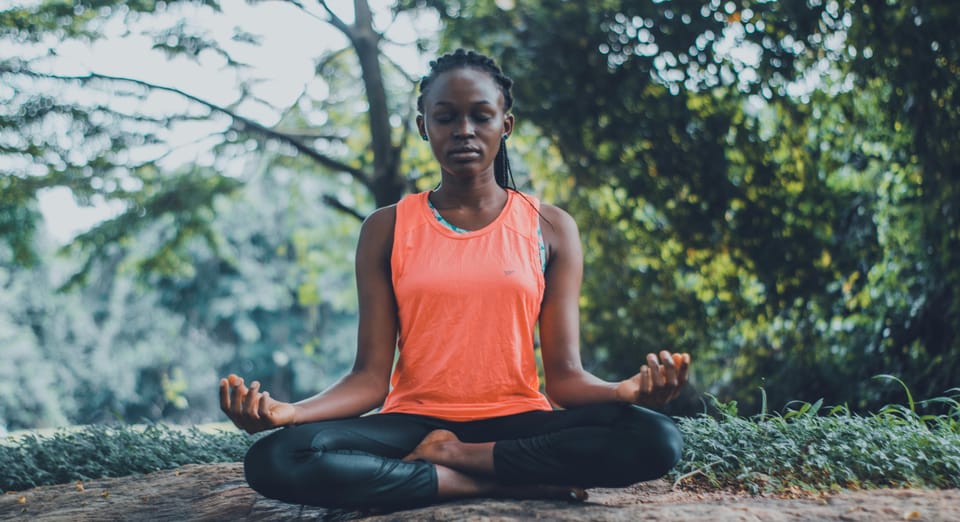Navigating the Balance Between Self-Awareness and Self-Discipline

In the exciting journey of personal growth, two key forces stand out: self-awareness and self-discipline. These concepts, while distinct, are deeply connected and crucial for unlocking your full potential. Self-awareness is like having a clear map of your inner world, helping you understand your thoughts, emotions, and behaviors. It’s the bedrock of personal insight that guides you in recognizing your strengths and weaknesses.
On the other hand, self-discipline is the fuel that drives you toward your goals. It’s the ability to manage your impulses and stay focused on your long-term aspirations. When you combine the clarity from self-awareness with the determination of self-discipline, you create a powerful synergy that propels you forward. By understanding yourself better, you harness the willpower needed to make real, lasting changes and achieve your dreams.
The importance of self-awareness
Self-awareness is a vital part of personal growth. It helps you pinpoint your values, beliefs, and what drives you. With self-awareness, you can recognize patterns in your behavior and identify emotional triggers that might be holding you back. It also allows you to have a clear understanding of your strengths and weaknesses.
When you cultivate self-awareness, you make more informed choices and can communicate more effectively. This deeper understanding of yourself gives you the ability to navigate challenges with greater clarity and intention, making personal growth more focused and purposeful.
The benefits of self-discipline
Self-discipline is the cornerstone of achieving your goals and unlocking your full potential. It brings a host of benefits, including increased productivity and focus, better time management, and improved organization. With self-discipline, you build resilience and perseverance, allowing you to push through obstacles and stay on track even when things get tough.
This crucial skill helps you conquer procrastination, resist temptations, and remain committed to your aspirations despite distractions. By mastering self-discipline, you set yourself up for success, making it easier to achieve your dreams and maintain steady progress towards your goals.
The relationship between self-awareness and self-discipline
Self-awareness and self-discipline go hand in hand, creating a powerful synergy for personal growth. Self-awareness gives you the insights needed to pinpoint areas where you can improve, while self-discipline provides the drive to take action and make those improvements.
For instance, if you're self-aware and notice you struggle with procrastination, self-discipline helps you tackle this issue by applying strategies like better time management or reducing distractions. On the flip side, without self-awareness, self-discipline can feel pointless, as you might not fully understand your true motivations or goals, leading to ineffective efforts and a lack of commitment.
Developing self-awareness
Cultivating self-awareness is an ongoing process that requires intentional effort and practice. Some strategies for developing self-awareness include:
- Mindfulness and Meditation: Engaging in mindfulness practices helps you become more aware of your thoughts, emotions, and physical sensations. This awareness can deepen your understanding of yourself and enhance your self-awareness.
- Journaling: Keeping a regular journal offers a structured space for self-reflection. By writing about your thoughts, feelings, and experiences, you gain clearer insights into your inner world and personal growth.
- Seeking Feedback: Asking for honest feedback from trusted friends, colleagues, or mentors provides valuable perspectives on your blind spots and areas for improvement. This external input can highlight aspects of yourself that you might overlook.
- Self-Reflection Exercises: Activities like visualization, guided introspection, and personality assessments can help you explore your values, strengths, and weaknesses. These exercises offer a deeper understanding of yourself and your personal development.
- Continuous Practice: Developing self-awareness is an ongoing process that requires consistent effort. By incorporating these strategies into your routine, you steadily build a more nuanced and insightful understanding of yourself.
Cultivating self-discipline
Developing self-discipline is a process that requires commitment and patience. Here are some strategies to cultivate self-discipline:
- Goal Setting: Clearly defining SMART goals—specific, measurable, achievable, relevant, and time-bound—provides a clear roadmap for self-discipline and keeps you motivated as you work towards your objectives.
- Habit Formation: Building positive habits, like regular exercise, healthy eating, or consistent study routines, helps reinforce self-discipline over time. These habits become second nature and support your long-term goals.
- Accountability and Support Systems: Involving others, such as accountability partners, coaches, or support groups, offers external motivation and encouragement. Their support can help you stay on track and committed to your goals.
- Reward and Consequence Systems: Setting up a system of rewards for achieving milestones and consequences for falling short reinforces desired behaviors. This approach keeps you focused and motivated to adhere to your self-discipline goals.
- Self-Compassion: Practicing self-compassion and avoiding harsh self-criticism helps maintain motivation and resilience. Being kind to yourself during setbacks ensures you stay on track and continue making progress.
Strategies to balance self-awareness and self-discipline
Achieving a harmonious balance between self-awareness and self-discipline is key to unlocking your full potential. Here are some strategies to help you find that balance:
- Regular Self-Reflection: Set aside time for self-reflection to stay attuned to your inner thoughts and feelings. This practice helps you assess your progress and adjust your self-discipline strategies as needed, ensuring you stay on track.
- Mindful Goal-Setting: Align your goals with your personal values and motivations, which you uncover through self-awareness. This alignment enhances your commitment and reinforces your self-discipline, making it easier to stay focused and driven.
- Flexibility and Adaptability: Understand that both self-awareness and self-discipline are dynamic. Be open to adjusting your approaches as your circumstances and personal insights evolve, ensuring that your strategies remain relevant and effective.
- Integrating Self-Care: Incorporate self-care practices like exercise, meditation, or hobbies into your routine. These activities support both self-awareness and self-discipline by promoting overall well-being and resilience, helping you stay balanced and motivated.
- Seeking Guidance: Consider working with a coach, mentor, or therapist to gain external perspectives and support. They can help you navigate the relationship between self-awareness and self-discipline, offering valuable insights and encouragement along your journey.
Conclusion
In conclusion, achieving a balance between self-awareness and self-discipline is crucial for genuine personal growth and self-actualization. Self-awareness gives you the clarity to understand your thoughts and behaviors, laying the groundwork for meaningful change. When combined with self-discipline, this insight empowers you to take consistent action toward your goals with determination.
Finding this balance is key. Without self-discipline, self-awareness might lead to feeling stuck, while self-discipline alone, without the self-insight from awareness, can lead to misguided efforts. Embracing both allows you to face life’s challenges with greater clarity and purpose.
The path to self-actualization is a continuous journey, but the rewards are deeply satisfying. By mastering the relationship between self-awareness and self-discipline, you can enhance your productivity, improve relationships, and find a richer sense of fulfillment. Embrace this balance to unlock your full potential and lead a more purposeful life.




